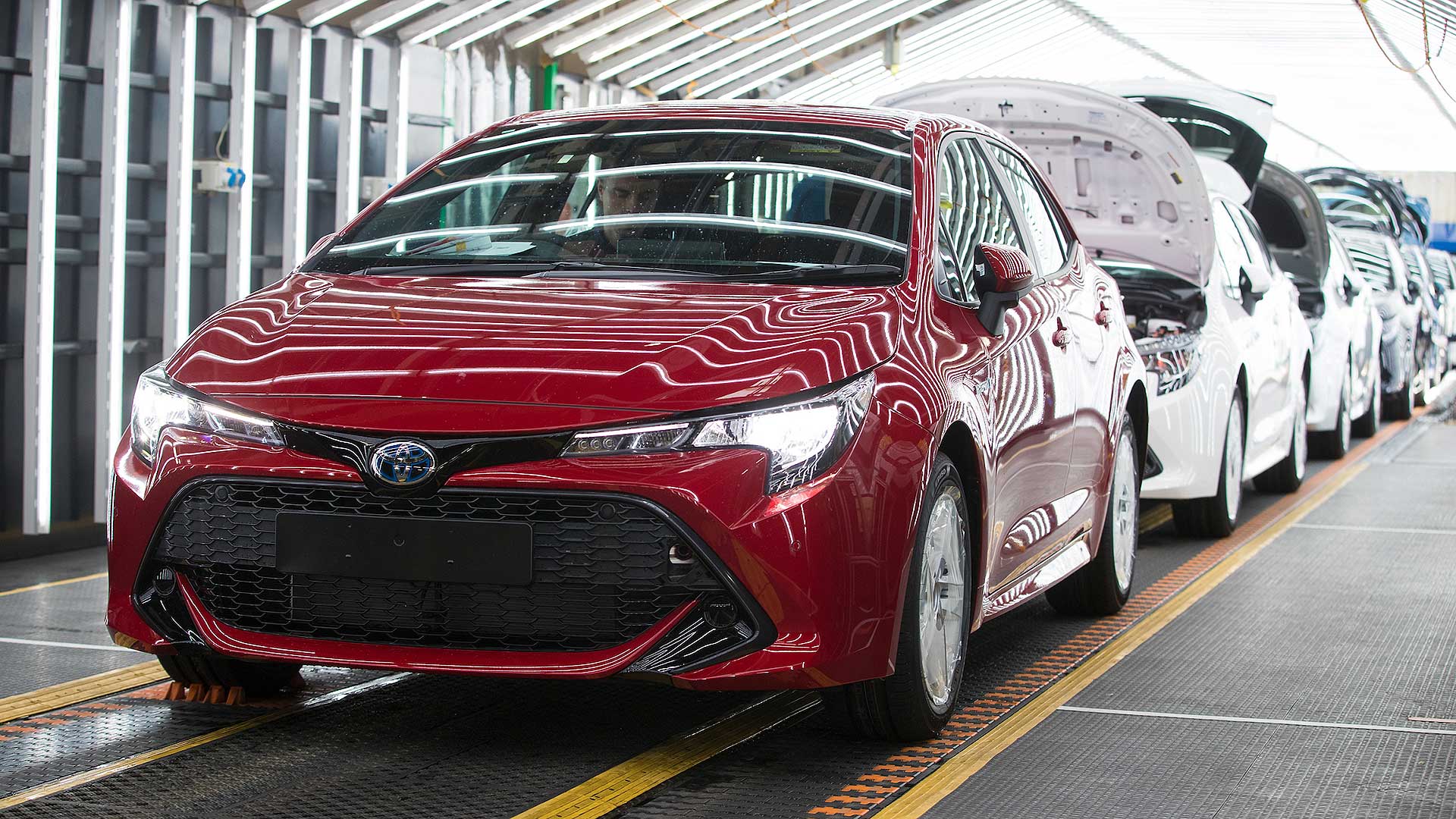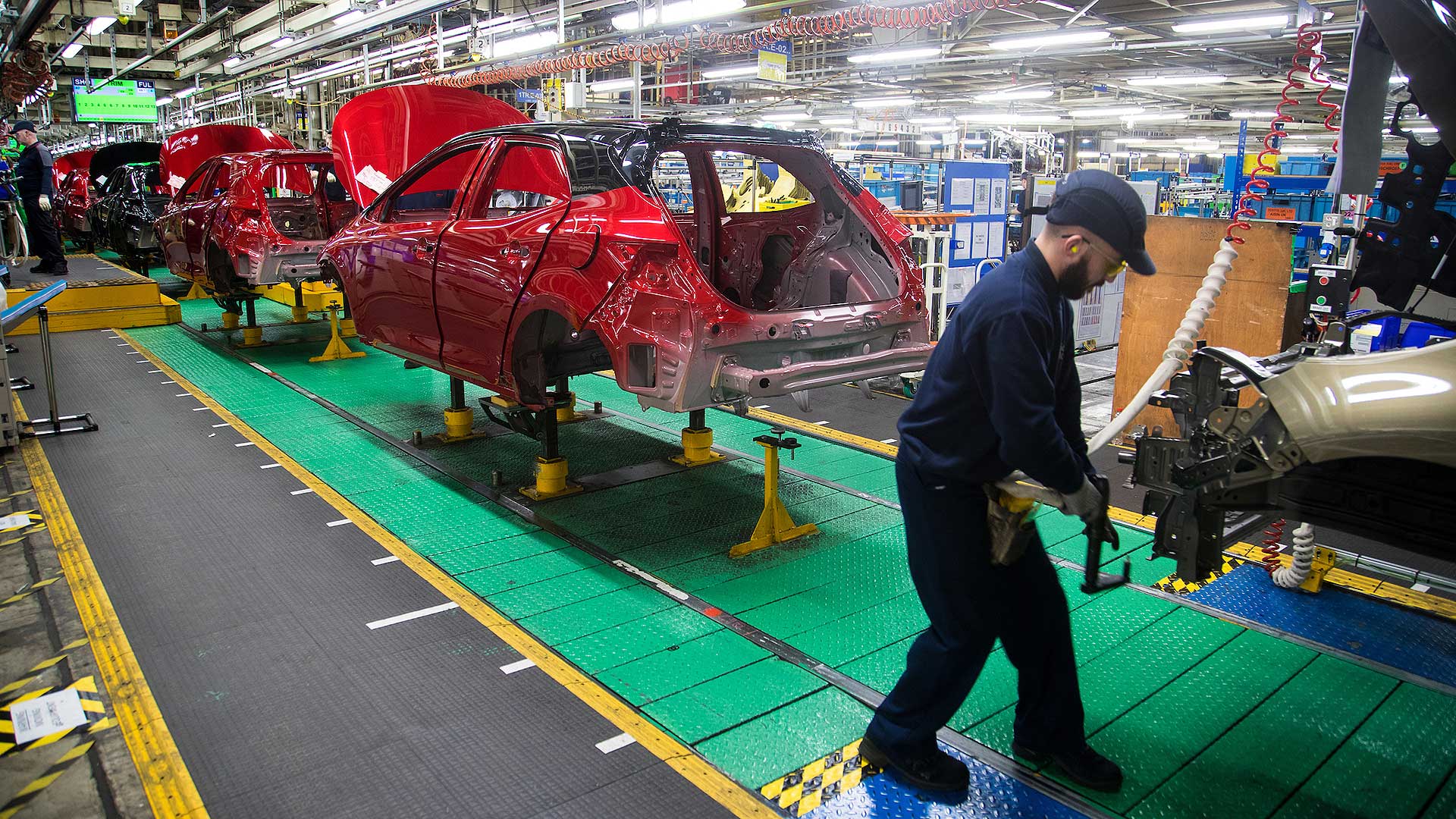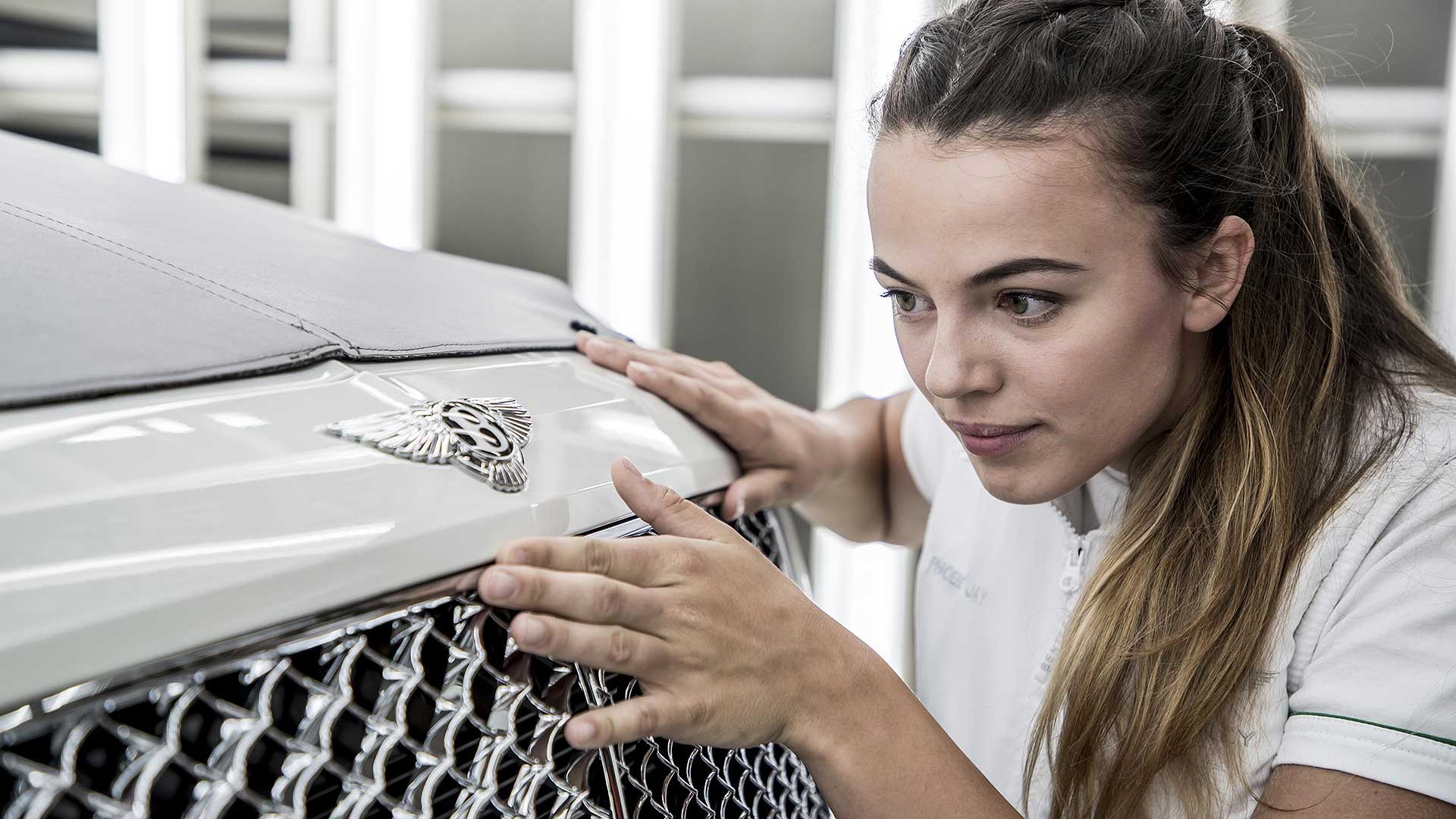 British car production fell in March 2019 for the 10th month running as continued Brexit havoc stalls investment and forces expensive factory shutdowns.
British car production fell in March 2019 for the 10th month running as continued Brexit havoc stalls investment and forces expensive factory shutdowns.
Total UK car production was down 14.4 percent in March, to 126,195 vehicles. Home demand fell 18.1 percent and exports were down 13.4 percent, according to new figures from the Society of Motor Manufactures and Traders (SMMT).
British car buyers purchased so few UK-built models in the first three months of the year, demand fell back to levels last seen in 2011.

Export demand is down, but such weak British sales mean the overseas share has actually risen, to 78.7 percent of UK production. This, says the SMMT, demonstrates how crucial free and frictionless change is to the British automotive industry.
Although new model switchovers and changing car preferences were a key factor in the production slump, SMMT chief executive Mike Hawes also blames Brexit. He is worried that “a devastating ‘no deal’ remains a threat.
“This new period of limbo does not end the havoc for industry, with investment stopped and expensive factory shutdowns moved to avoid a Brexit deadline that has itself now moved.”
Back to the 1980s?

Brexit has already hurt the UK automotive industry, said Hawes. “Just a few years ago, industry was on track to produce two million cars by 2020 – a target now impossible, with Britain’s reputation as a stable and attractive business environment undermined.”
His strong words come as the latest research from independent forecaster AutoAnalysis shows how Brexit could affect the UK car industry.
Even if a favourable deal can be achieved, 2019 production will fall from 1.52 million cars in 2018, to 1.36 million in 2019. It will, however, rise again to 1.42 million by 2021.
However, in the event of a no deal crash out of the EU, output is expected to plunge, to just 1.07 million units in 2021. This is a level “consistent with the dark days of the mid-1980s.
“All parties must find a compromise urgently so we can set about repairing the damage and diverting energy and investment to the technological challenges that will define the future of the global industry.”